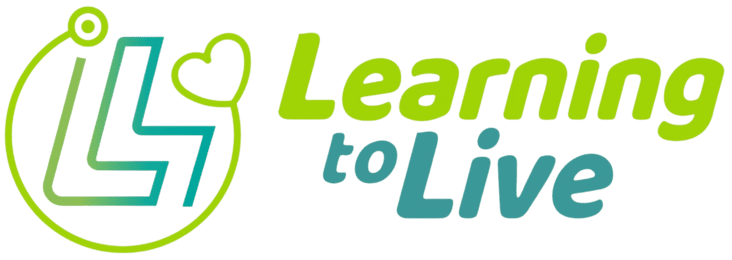WHO: Belize free of malaria
The country has gone from a peak of approximately 10,000 cases during 1994 to zero autochthonous cases in 2019.
The World Health Organization (WHO) certified Belize as the second Central American country free of malaria.

Dr. Jarbas Barbosa, Director of the Pan American Health Organization (PAHO) said, “This is an extraordinary achievement for Belize, and will also serve as an inspiration for the other endemic countries of the Americas.
To explain the achievement, the Global Malaria Program and the Pan American Health Organization (PAHO) recently prepared a series of questions on the key to the success of Belize’s malaria eradication program over the past 30 years. The following is a summary of the document for our readers. what was produced.
Belize came close to eliminating malaria in the early 1960s. What interventions were used then to control this disease and why was the elimination goal not achieved?
Since 1950, the country has implemented a specific program aimed at eliminating malaria. Actions were limited to pesticide spraying and case detection by vector control experts. In 1957, the National Malaria Elimination Service was established.
The results were remarkable, so much so that between 1957 and 1963, the annual number of malaria cases was reduced from more than 1000 to only 17. However, by 1965, the number of cases had increased 12-fold. The failure was attributed to budget cuts for malaria control and the influx of immigrants from neighboring countries.

How did Belize manage to end malaria? What tools or strategies were critical to the successful elimination of the disease in Belize?
The country has achieved a dramatic reduction in its number of malaria cases, from a peak of approximately 10,000 cases in 1994 to zero autochthonous cases in 2019.
The decrease has been the result of national and international actions dedicated to surveillance, detection, diagnosis and treatment. As well as intradomiciliary residual spraying actions and long-lasting insecticide-impregnated bed nets targeting high-risk groups, including migrant workers living in border areas with Guatemala and Mexico.
Improved surveillance allowed for a more strategic reorientation of interventions and available resources in priority areas.
Notably, the Central American country maintained malaria surveillance efforts even during the pandemic that began in 2020 and made an effort to integrate malaria surveillance systems and COVID-19.
In addition to the health sector, which organizations contributed to this achievement?
Collaboration with the agriculture and tourism sectors. For example, early case detection in migrant workers supported by the banana, sugar and citrus industries.
Meanwhile, the national vector control program and the Belize Vector and Ecology Center have ensured the implementation and maintenance of entomological surveillance.
What role did community health workers play in reducing malaria cases?
A network of community health workers and volunteer collaborators was at the center of the efforts and helped ensure early detection of malaria and provision of effective antimalarial treatment.
What cross-border efforts between Belize and its neighboring countries, Mexico and Guatemala, are underway to prevent the re-establishment of malaria?
Collaboration has focused on information sharing between teams stationed along the borders, and the distribution of information, education and communication materials for travelers and migrants.
Has Belize also participated in regional and global initiatives or programs to keep malaria at bay?
Belize has participated in several regional initiatives, such as the Elimination of Malaria in Mesoamerica and the Island of Hispaniola, financially supported by the Global Fund to Fight AIDS, Tuberculosis and Malaria, and the Regional Initiative for the Elimination of Malaria (IREM), established by the Inter-American Development Bank with the technical leadership of PAHO and the participation of the Council of Ministers of Health of Central America (COMISCA).
With support from USAID, PAHO has provided technical cooperation through the Belize Malaria Campaign. This success contributes to PAHO’s Disease Elimination Initiative, a collaborative effort among governments, civil society, academia, the private sector and communities to eliminate more than 30 communicable diseases, including malaria, by 2030.
Globally, Belize is also a member of the “E-2025” initiative, a group of countries identified by WHO as having the potential to eliminate malaria by 2025.
How will Belize maintain a robust surveillance and response system to prevent the re-establishment of malaria?
The health agenda in the country focuses on maintaining malaria surveillance in both the general population and high-risk groups.
To this end, refresher courses for health personnel and volunteers are organized and sensitization of agricultural and tourism workers continues.
Are there lessons learned from the Belize experience that could be applied to other countries in the region?
Yes, for example, the need for specialized personnel in vector control, maximizing diagnostic tests and treatment through health services.
As well as the joint work of the malaria control program and agricultural companies. The experience is so new that vector control staff have established good relationships with major farms that hire workers from neighboring countries where malaria is endemic, ensuring the distribution of information, education and communication materials, as well as rapid malaria testing, diagnosis and treatment.
Will Belize use the lessons learned from its malaria elimination strategy for other infectious and vector-borne diseases?
It is likely that these strategies will be implemented for other vector-borne diseases, such as leishmaniasis and Chagas disease.
Datos vía www.who.int/es y www.paho.org/es

